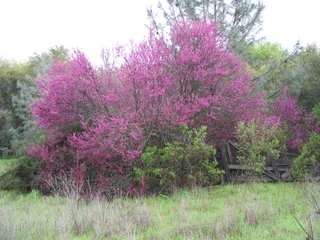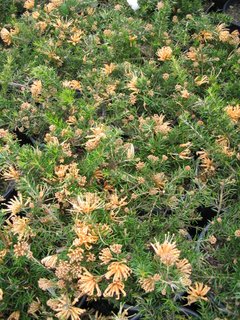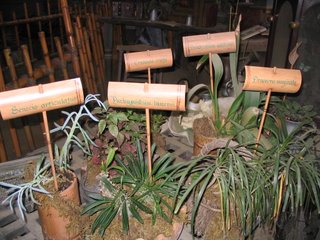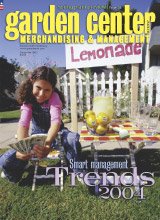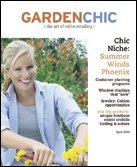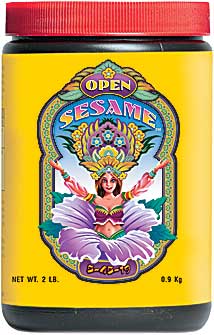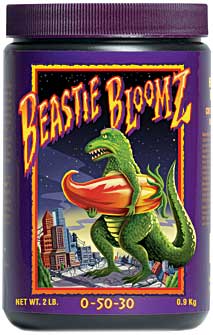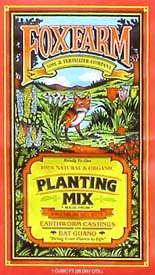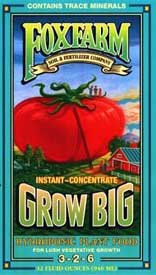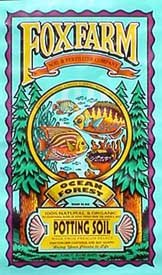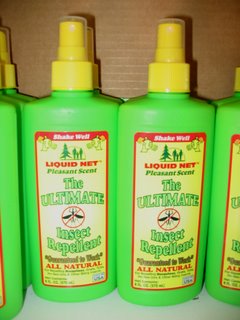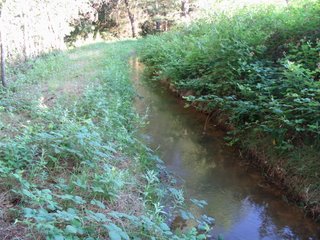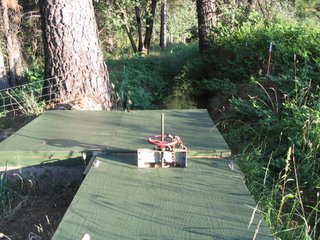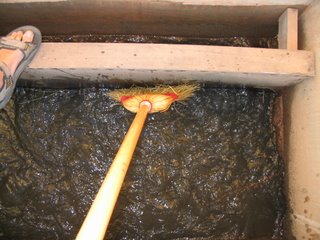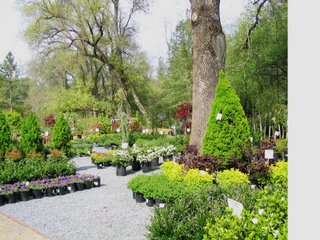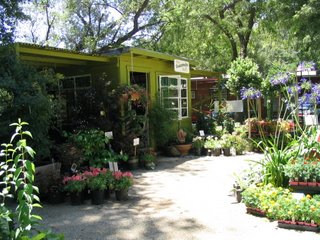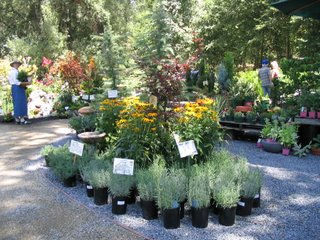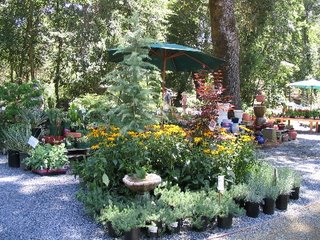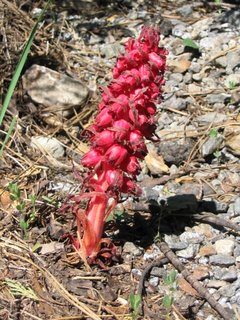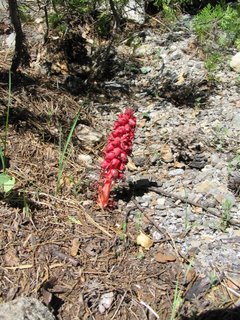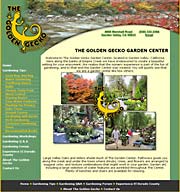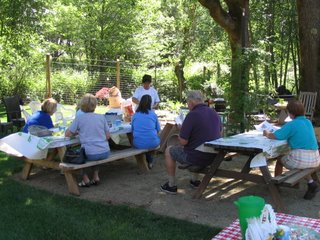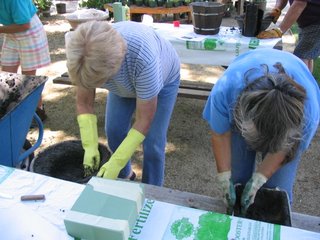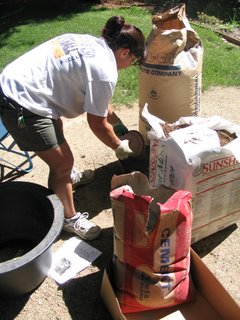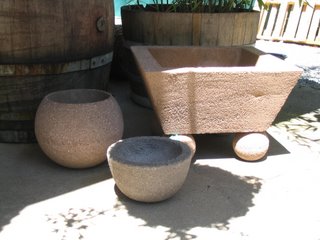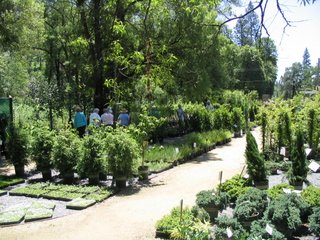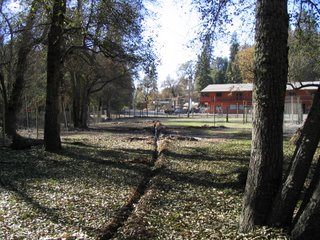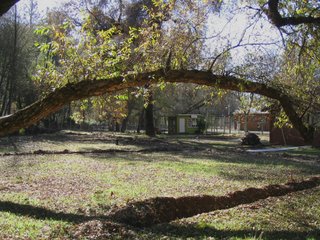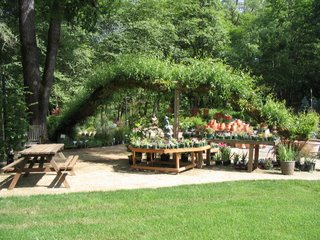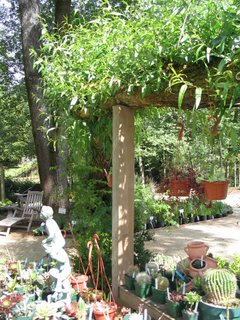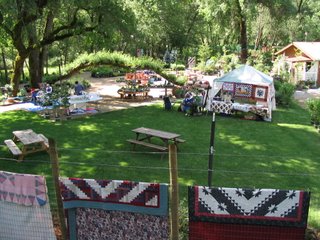Just finished reading a post by alamedagarden about a man named Bob Flowerdew. Mr. Flowerdew is a popular garden celebrity on the BBC in Great Britain. He is "the garden guy", as the Washington post say's. "'Gardeners' Question Time' has an audience of 2 million in a country of 60 million. To translate that kind of audience to the U.S. (with a population of 299 million), a gardening guru would have to have an audience of 10 million. According to USA Today, that would be equal to the audience of last week's #2 top-rated broadcast TV show, 'So You Think You Can Dance'".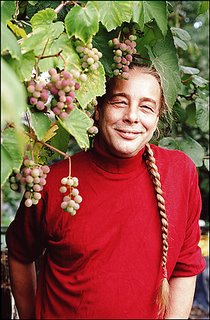
The article is a fun read as Mr. Flowerdew is a very interesting man. Claire's post laments the fact that we here in the U.S.A. don't have a Mr. Flowerdew and that if there was an American Flowerdew--someone knowledgeable, funny, charismatic, and (it goes without saying) organic--that he could be the pied piper to seduce more of us into taking up the shovel and rake? That he (or she, of course) could actually grow the audience"?
However, further in the article by The Post comes the reason why I don't think one person in The United States will be able to have the influence Mr. Flowerdew does in Britain. The Post says "The notion that Britain is gardening mad is absolutely true, of course." It continues, "In the uncertainty of postmodern, multicultural and rather godless Britain, gardening is not just a shared hobby. 'Gardening is one of the few things holding British society together,' said Sir Roy Strong, historian and former longtime director of the Victoria and Albert Museum".
We just do not have the gardening heritage that a place like Great Britain has. The United States, being a place made up of so many different types of people and cultures just wouldn't get behind one person that way. Not to say that we too are facing our own challenging times, and could use the common connection that gardening has on the psyche of The British.
I believe the reason we are hearing about a decline in gardening is that mass gardening media, and the larger horticultural concerns, have a vested interest in keeping "gardeners" in their market share. When people refuse to call themselves gardeners, this is of great concern to them. They have spent millions to get the audience they have, and to hear it may be declining is cause for worry. I believe it's more a case of semantics. People may not call themselves gardeners, but will work feverishly to complete that "outdoor room", as the magazines now call gardens. Most people like many recreational activities, and while gardening may be one of them, they may not think of themselves as "gardeners". Lot's of folks just don't want to be labeled, or seem one-dimensional.
Here is my premise. We already have our own Mr. Flowerdew. It's us! People like Claire and other garden bloggers, and readers, are our version of Mr. Flowerdew. Instead of learning from one man on the television screen, we are learning from hundreds and soon to be thousands of people blogging. Why watch another boring garden show on HGTV with a paid celebrity when we can share with so many others, ideas that are so far ahead of anything we are seeing in mass garden media.
I believe we are witnessing what will be a renaissance in gardening, or what ever it's called. With the power of The Internet you have the potential to reach hundreds, if not thousands of like minded gardeners with your passion. As more and more people find out about garden bloggers writing and sharing their gardens, and garden ideas, they will want to take part. When you live off the beaten path where no one can see your garden you often wish you could share it with people. Now you can. Sometimes you get a following of people who are really interested in how that tomato is doing, or your experiences at the garden center. When you do you will become even more enthused about your garden and gardening because you don't want to let your "fans" down. Talk about your beautiful plant, but don't show pictures and they will let you know.
We are only at the beginning of this renaissance and it may not be noticeable to many. Just like bloggers who are a big part of why the big news networks are loosing market share, I feel the same thing will happen in gardening. I could be wrong, but for me it has become more important to check out whats going on in the blogosphere than read a garden magazine, or watch the television. I still read the magazines and sometimes watch the television shows, but the internet is where I get the real "dirt".

